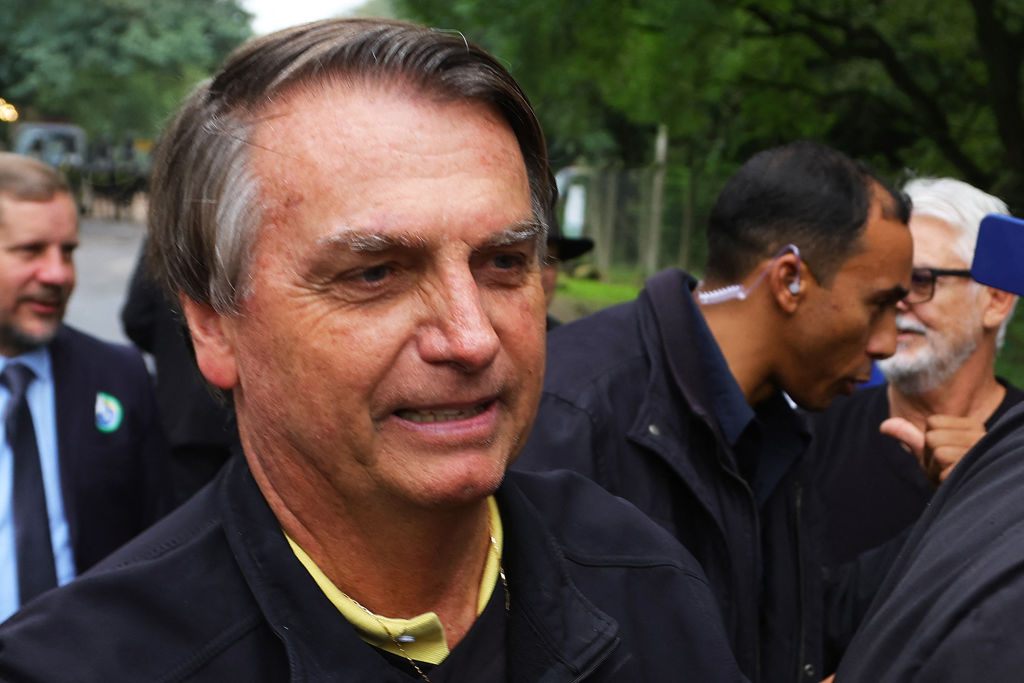Cliff Notes – Will Brazil’s trial of Bolsonaro strengthen democracy or fuel polarization
-
Brazil’s judiciary is currently testing its resilience as supporters of ex-President Jair Bolsonaro face off against the judiciary amid accusations of bias, similar to claims made during Lula’s previous legal tribulations.
-
The trial of Bolsonaro, alongside high-ranking military officials for charges including an attempted coup, marks a historic moment for Brazil’s democratic institutions since the end of military rule.
- Despite recent political turmoil, Brazil’s system of governance remains intact, ensuring checks and balances that prevent any one branch from dominating, although the resulting inefficiency is a source of frustration for many.
Will Brazil’s trial of Bolsonaro strengthen democracy or fuel polarization
Who will prove to be the defender of democracy in these trials?
In Brazil, supporters of ex-President Jair Bolsonaro, who is on trial before the Constitutional Court for an attempted coup, are facing off against the Brazilian judiciary.
In France, supporters of the French right-wing populist Marine Le Pen, who was convicted of corruption, are protesting against what they consider a “political verdict”.
And in South Korea, many people see President Yoon Suk Yeol, who was recently dismissed by South Korea’s Constitutional Court, as a “martyr for democracy.” Yeol had surprisingly imposed martial law in December 2024 to “protect the country from pro-North Korean anti-state forces.”
For Brazilian political scientist Carlos Pereira from the University Fundacao Getulio Vargas, the criticism of Brazil’s allegedly biased judiciary is actually a sign of its strength. “Those who lose always accuse the judiciary of being biased and unjust,” he told DW.
When Brazil’s President Luiz Inacio Lula da Silva was convicted and arrested for corruption in 2018, Lula’s left-wing supporters had made the same argument.
“Similar allegations can be observed in France, Germany and the US,” said Pereira, the co-author of the book titled “Why Didn’t Brazilian Democracy Die?”
“The judiciary is not getting weaker based on the perception of people who are currently on the losing side,” he said.
Generals on trial
Regardless of the outcome, the trial against Brazil’s ex-President Bolsonaro is already historic. For the first time since the end of the military dictatorship (1964-1985), high-ranking military officers are standing trial before a civilian court.
In addition to Jair Bolsonaro, 33 further people have been charged, including former ministers and generals.
According to Brazil’s Constitutional Court, the charges are “Violent abolition of the democratic rule of law, attempted coup plot on 8 January 2023, damage to monuments and membership of a criminal armed organization.”
“The proceedings before the Constitutional Court show how robust the institutions of Brazilian democracy are,” Pereira said.
However, the reasons for this resilience appear somewhat paradoxical.
Brazil: Inefficient, but democratic
According to Pereira, the “expensive and inefficient” interaction between Brazil’s judiciary, parliament and government is precisely what prevents governments from implementing plans quickly.
“The government always lacks the majorities in Congress, no one can rule alone, it has to be negotiated, and this preserves democracy,” he explained.
There has not been a president in Brazil with a stable majority in Congress since the first free elections after the end of the military dictatorship in 1989. A US-style merger of the legislative and executive branches against the judiciary, where judges are nominated by parliament, is inconceivable in Brazil, Pereira said.
Repeated impeachments
So far, two presidents have been removed from office in Brazil.
In 1992, President Fernando Collor de Melo was removed from office by Congress in impeachment proceedings due to corruption, and in 2016 the country’s first female president, Dilma Rousseff, was impeached for tax and budgetary offenses, Pereira recalls.
Brazil’s current President Lula was put on trial in 2018. He spent two years in prison for corruption.
“This proves that Brazilian institutions are strong and independent and capable of punishing misconduct, regardless of whether it is a right-wing or left-wing government,” says Pereira.
More polarization in Brazil
“However, this does not mean that social polarization will decrease,” Pereira told DW.
During the latest demonstrations last weekend in Sao Paulo, the extent of this split was evident.
Pro-Bolsonaro participant Ana Oliveira is convinced that “all right-wing politicians in Brazil are persecuted as right-wing extremists.”
“We live in a dictatorship,” she told the Brazilian newspaper Folha de S. Paulo.
Another demonstrator interpreted the events of January 8, 2023 as a “vendetta” by President Lula. “This was all arranged by Lula, he was angry with Bolsonaro,” she told the same newspaper.
Even though the people interviewed at the demonstration were all certain that Bolsonaro will run in the 2026 presidential elections, experts consider this to be basically impossible. The ex-president has already been convicted of abuse of power and spreading fake news by the Brazilian Supreme Electoral Court and is therefore banned from running for political office until 2030.
Sources
Brazil’s democracy is ‘inefficient’ but solid – DW News
Brazil’s ex-President Bolsonaro to stand trial on coup charges – BBC News
The risky trial of Jair Bolsonaro – FT
Supporters gather in Sao Paulo to back Bolsonaro as he faces trial – Reuters


